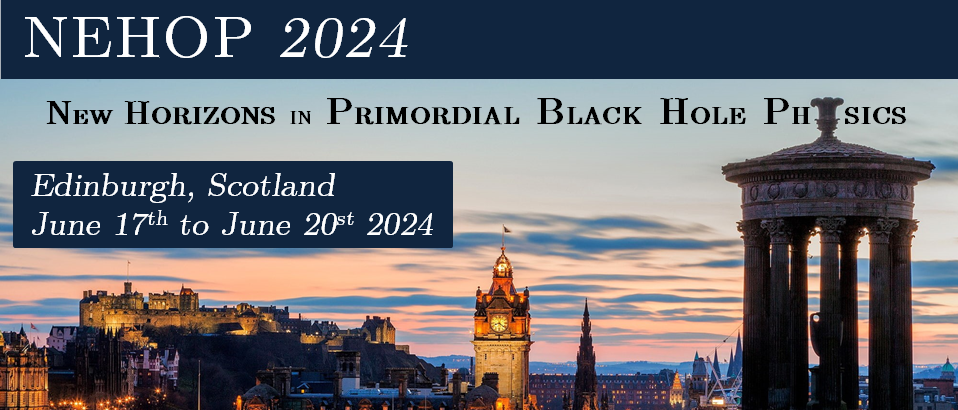Conveners
Session 8
- Chair: Michael Baker
In the string axiverse scenario, primordial black holes (PBHs) can sustain non-negligible spin parameters as they evaporate. We show that tracking both the mass and spin evolution of a PBH in its final hour can yield a purely gravitational probe of new physics beyond the TeV scale, allowing one to determine the number of new scalars, fermions, vector bosons, and spin-3/2 particles....
Primordial Black Holes (PBHs) could play a relevant role in several physical phenomena. They are particularly attractive as a candidate for dark matter, seeds of supermassive black holes, sources of gravitational waves, etc. In addition, the observation of an evaporating black hole would provide definitive information on the elementary particles present in nature, including new degrees of...
We discuss a novel mechanism for producing topologically stable monopoles (TSMs) from the quantum mechanical decay of metastable cosmic strings in the early universe. For a dimensionless string tension parameter $G\mu \approx 10^{-9} - 10^{-5}$, the monopoles are superheavy with masses of order $10^{15} - 10^{17}$ GeV. The stochastic gravitational wave emission arises from metastable strings...
We propose methods to determine the mass and spin of PBHs based on measuring specific features of the primary emitted Hawking spectra. In the previous edition of this conference, we focused on masses between 5 × 10^7 and 10^12 kg and adimensional spin parameter a = 0.1–0.5. Now we extend those ranges in distant independent ways.
We investigate values of a ≳ 0.6, measuring the energy and...
This talk examines the cosmic microwave background (CMB) bounds on solar mass and heavier primordial black holes (PBHs). While the CMB bound is often regarded as the most stringent in this mass regime, its computation relies on several astrophysical assumptions, including accretion geometry, dark matter halo formation, and the treatment of energy injection and deposition. By applying realistic...

